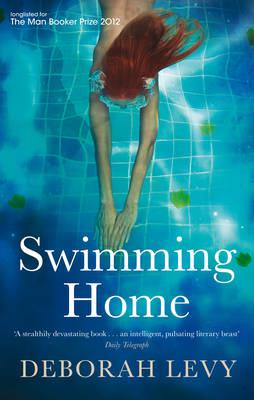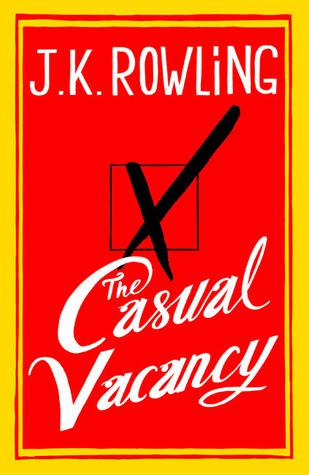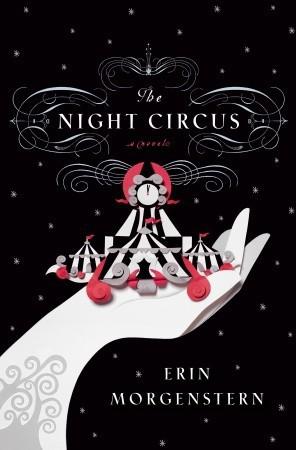
Not the first time I haven't posted a Sunday Salon until Monday. Probably won't be the last.
First, the Booker Shortlist contenders, which I frankly don't feel as much excitement about as I did before the current majordomo spewed his curmudgeonly diatribe against book bloggers, putting a bad taste in my mouth regarding the elitism surrounding the Man Bookers in general. I don't feel as much respect for the prize, to be honest. But I've invested so much time reading the Shortlisted books I'm not going to give it up quite yet, though my enthusiasm has waned appreciably.
I'm wrapping up my re-read of 'The Lighthouse,' continually amazed how rich it is, how much I missed the first time around. There are so many delicious little nuggets buried throughout you can't pick them all up in the course of a first read; it takes knowledge of the book in its entirety to fully appreciate its earlier nuances.

One big realization this time around, I question how reliable the narrator is, or perhaps how self-aware, I should say. Through Futh's eyes the reader sees the often excruciatingly cringe-worthy behavior he just brushes off, while the rest of us gasp in horrified disbelief. There are so many instances, one involving pink silk underwear Futh finds beneath his bed, tying into Ester the landlady of the inn he stays at the first and last nights of his vacation and her sexual indiscretions. Futh appears anything but the innocent bystander he truly is when he decides the right thing to do is put the underwear on Ester's desk, of all places, believing she'd misplaced them:
"In the lift, he realizes that he is still holding the knickers. They are clenched in his closed hand, slivers of pink satin showing between his fingers. He does not know what to do with them, who to give them to. Entering the bar, he hesitates before putting them down - very carefully, as if they were fragile - on the landlady's check-in desk, next to her ledger."
Did I mention the book's darkly comical?
When Ester's husband sees what appears to be yet more evidence of his wife's extracurricular activities, he denies Futh breakfast, telling him to leave. And what does Futh think? He's baffled, upset he won't be getting his food, while Ester's long-suffering husband glares holes in Futh's back. Considering what he could have done to Futh, I'd say he got off quite easily. He, however, would disagree. The man does enjoy his food.
Makes me believe his Aunt Frieda hit upon the truth when she told Futh, "You're an accident waiting to happen." Though Futh isn't a mere caricature, just a man who often lacks the ability to distinguish normal behavior from that which is socially unacceptable. But much has been taken from him, leaving him emotionally stunted, the most wrenching example the desertion of his mother:
"He woke in the night and his mother was there, her round face above him, lit by the moon through a gap in the curtains. When she left his room he was alone in the dark with her scent - the smell of violets - and the sound of her footsteps going down the stairs.
By breakfast time, she was gone, and his father was already drunk. Before she left, his father never hit him. Afterwards, when he did, it was without warning, or nothing Futh noticed in time. It was like when birds flew into windows with a sudden sickening thud, and then having to look at the bird lying terribly still on the ground outside, perhaps only dazed but probably hurt or broken in some way."
The imagery is heartbreaking. After his mother's departure Futh comes to depend on their neighbor, Gloria, a middle-aged woman who just manages to avoid crossing the line to sexually abusing him. Her son, increasingly moody and bullying to Futh, is for a while a sort of friend, until he grows sick of the boy's neediness. For a time when they were friends, at night they would shine flashlights between their bedroom windows:
"It was, for Futh, like looking at a lighthouse on the horizon at night. There was this flashing of light and then nothing, and you waited for the next flash, looking at where the light had been and where it would be again but you were looking at darkness."
The two over-riding themes in the book are lighthouses and scents; I could write pages and pages filled with the examples. They're everywhere, drawn together by the identical lighthouse/perfume holders both Futh and Ester coincidentally own (Futh's the nicer metal version, Ester the same in cheaper wood). Futh obtains his by lifting it from his mother's dresser, a souvenir/pacifier to stand in for the love his mother denies him through desertion, Ester as a gift from her husband, whom she's driven away by cuckolding him openly with random visitors to the inn. Yet, she still covets the holder and the perfume he gave her so long ago, along with all the souvenirs she collected during the time she and her husband were dating. A romantic notion for a woman who has sex with random men, not caring her husband's well aware what she's doing, yet doesn't stop her. It's as though any attention is good attention, the bruises on her upper arms the battle scars of their love. Moore describes their confrontations strangely poetically:
"In the night, there will be a storm. It will be brief, if a little violent, and hardly anyone will realize it has occurred, although they may hear it raging, thundering, in their dreams.
In the morning, by the time people are up and about, the sun will be out again, and the rain-soaked pavements will be dry, and there will be very little evidence of damage."
As for Futh's own marriage to his wife Angela, his time away allows him much time for reflection:
"... She had always been irritated with his awkwardness around people, women in particular. He knew her mother found him strange. He was introspective, insufficiently aware, Angela often said, of other people and how they might see things.
...
He was a bad listener, apparently, bewilderingly incapable sometimes of following simple instructions. He was always late leaving the house, late arriving anywhere, even when he had to meet Angela. And he never apologized, even when he was clearly in the wrong. These were small things but he supposed they built up, amounted to something. He imagined things being different. He had a reverie in which he said and did the right thing and Angela did not leave him. But it was too late, it had already happened."
But why are Futh, the protagonist, and his landlady Ester, a woman he meets for the first time only after he's arrived in Germany to start on his post-divorce walking holiday, so closely connected? Why these two people?
Because they're lonely, which isn't an unusual condition, isn't hard to find whatsoever. Each yearns desperately for love but cannot express either the need or the emotion appropriately. Both lost the love of their mother: Futh through desertion, Ester through her mother's aloof disregard of her. Each clings so hard to a commercially made representation of a lighthouse (which had contained a bottle of perfume smelling of violets - a scent that recurs often), which obviously stands for the beacon meant to see them safely home, yet neither can find a safe port. Still, why these two completely unrelated people, why a random town in Germany and why all the coincidences?
Perhaps the point is, why not?
Do read this book. It's so gorgeous.

In other Booker news, the publisher of 'Swimming Home' has kindly given me access to an eBook, so that's one less I'll have to buy, and Will Self's publicist is sending me a(n additional) copy of 'Umbrella,' with the suggestion I may be able to interview the probable Booker winner once things have settled down a bit, perhaps not 'til the winter, which is fine by me. And the others? Haven't gotten around to them.

Onto popular fiction, I mentioned previously I had to read 'The Casual Vacancy,' curious to see how JKR's writing translates to adult fiction. I'd pre-ordered a copy via Amazon back in August, but became disproportionately irate when the delivery date indicated on the web site was October 1. Really? October 1? So Barnes & Noble will get my returned Amazon copy. I'll have finished reading the freaking book before the Amazon copy arrives.
Sheesh.
In fact, I just did finish it and I'm sorry to say it draaaaagged so much it confirms my suspicion editors are afraid to touch JKR. There's so much unnecessary story padding that doesn't advance the plot and a cast of characters so huge I had to keep flipping back to remind myself who's who. I suppose she's so used to working with dozens of characters she saw no reason to change her methods for adult fiction but I'm not amused. Actually, I'm a bit irritated. But you know how it is, first novel and all... She'll get the hang of it.
The plot? Well, with the sub-plots added there was enough to form a solid framework. The problem is there were so many things hanging from them the lines bowed under the stress. Too many people, too much going on for belief (or to devote sufficient attention to each) and far, FAR too many words. She took 512 pages to say what a more sparing writer could say in under 300. In the hands of, say, Julian Barnes - comparing it to his Booker winning The Sense of An Ending - he'd have knocked it off in 250 pages, no problem.
But JKR is no Julian Barnes.
Frustratingly, she writes well. Her prose style is streamlined and she knows what she's about. She just won't shut up. But the dialogue? Made me want to put a skewer through my brain. It was like reading Pygmalion a few 'undred times through, or, as one reviewer noted, channelling overly exaggerated Dickensian characters, whose speech mannerisms one can only take so long.
I get it. Several of the characters were lower class and didn't speak in posh, or even understandable, accents. But do we need to hear that for 500 pages? Aren't there methods of conveying this that don't make the reader weep in dismay?
Yes. Yes, there are.
Will I read JKR's future efforts? Oh, probably, because she is who she is and I'm not immune to what was the Harry Potter franchise. I'll read her again and hope for the best, praying she's reading her reviews for this effort. And, speaking of effort, kicking that up a notch wouldn't be amiss.

In October I'm going to hear author Erin Morgenstern ('The Night Circus') speak in Oswego, IL. I haven't decided yet if I'll also beg an interview with her beforehand but in any event I've had this review copy a few months and decided it was high time I read it. I'm 100ish pages in and absolutely loving it. Loving it.
It's not everyone's thing, with its hint of things magical flirting with magical realism, but it has a sort of wacky 'Alice in Wonderland' quality I just really enjoy. Reviews are overwhelmingly positive and after visiting her website I'm floored how young the author is. Depressed, too, remembering what I was doing back when I was her age: changing diapers, watching Oprah and having regular nervous breakdowns. Let's not get on that tangent, though. It never ends well.
I'm hoping to finish this one off soon so I can decide if I need to knock on her publicist's door or not. If I have the time, that is. Would I like to? Yes, which averages everything out to a solid maybe.
I'm still reading a lot of things I mentioned last time I recapped, so I'll stop here and let's call it even. Whatever will be, will be.

